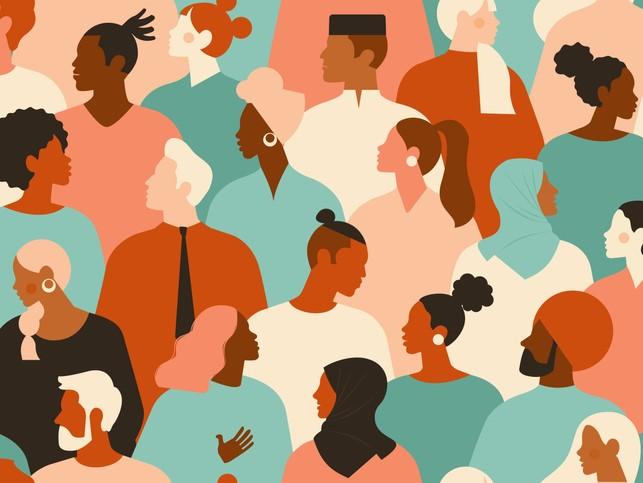
Yes, your university perpetuates racism against BAME academics: what can you do?
Henrika McCoy and Madeline Lee run through the questions you should ask when examining if your institution perpetuates inequities against BAME academics and what actions you can take to address systemic racism

In 2022, we will continue to rely on, and exploit, Black, Asian and minority ethnic (BAME) academics for their experiences with and knowledge of racism. Many universities see diversity training as a solution; however, identifying an institution’s weaknesses is essential. Here are some questions you need to ask:
What is your university’s history of recruiting, hiring, promoting, and retaining BAME academics?
- Is your institution rife with racism? When a BAME faculty member shares experiences, are they blamed and dismissed? Are perpetrators not addressed, allowing them and others to perpetrate racism?
- Does your university not retain BAME faculty? Are they then hired at more well-respected institutions with a higher rank?
Does your university define productivity, success and “meaningful contributions” narrowly?
- Is the unofficial mentoring of BAME students and junior colleagues provided by many BAME academics counted?
- Is being the “diversity” representative on department, university and system-wide committees acknowledged for the inevitable emotional burden?
- When BAME academics share their expertise about BAME students, colleagues or research participants, is it recognised as valuable or expected?
- Is it recognised that there are fewer grant funding opportunities for BAME scholars who often research undervalued populations?
- Is it acknowledged their scholarship may be published in lower impact factor journals because the questions asked are undervalued?
- Are those realities included during tenure and promotion reviews?
Does your university risk the promotion of BAME academics to meet its diversity goals?
- Are BAME administrators given the untenable task of leading, while having their scholarly contributions overlooked and dismissed, and denied promotion for failing to meet the university’s expectations?
- Are BAME scholars asked to sacrifice their research to take on “diversity” projects for the university?
Does your university tap the expertise of BAME faculty related to diversity, equity and inclusion (DEI) but fail to alter the problematic environment?
- Is the DEI office expected to “fix racism”?
- Does the DEI office have appropriate supports and resources?
- Is the DEI administrator accountable for the university’s failure to improve?
Does your university acknowledge and consider the impact of the intersection of racism and Covid-19 on BAME academics?
- If yes, what support and resources are available to address the likely disproportionate impact, such as higher incidences of illness, trauma, death, fear, caregiver burden and financial strain?
- If no, what barriers need to be eliminated to create a supportive environment?
- Is the heavier burden experienced by many BAME faculty resulting from an increased demand for their expertise about the pandemic acknowledged and counted?
Action to put an end to racism against BAME academics
Is your institution guilty of any of the aforementioned shortcomings? The following are a few ideas to begin creating change.
1) If your system is unsuccessful in recruiting, hiring, promoting and retaining BAME faculty, something is wrong. Invest time and money to identify the problems. Do not make excuses or disregard the need for change. Expand your recruiting strategies. Compensate evenly qualified BAME and white academics equally. Broaden tenure and promotion standards. Count the extra burdens carried by BAME faculty.
2) Do not dismiss reports of racism. Nice people can engage in racist behaviours. Institutions that espouse DEI can also harbour and breed racism. BAME faculty who report racism are brave and should not be met with rebuttals, excuses, dismissal or minimisation.
3) It is OK to ask BAME academics to take on roles and responsibilities that may tap into their lived experiences as a BAME individual. However, do not expect or demand a “yes”, accept a declination. If they say “yes”, understand that the role likely requires an emotional investment that is not part of their job. You have no right to demand it.
4) Ensure that your DEI office is supportive. A dynamic and responsive strategic plan needs to exist and to be implemented. Decisions and plans should be informed by the experiences of BAME academics at your, and other, institutions. DEI officers can lead efforts, but implementation is everyone’s responsibility.
5) Support BAME faculty experiencing additional stressors due to the multilayered impact of racism and the pandemic. All faculty need help such as mental health resources or caregiving supports; however, additional stressors might influence BAME academics’ performance. If BAME academics refocus their research and scholarship in response to our society’s current circumstances, view it as their continued professional development, not as promulgating a personal agenda.
6) Engage an outside expert to identify steps that can begin to eradicate your institution’s racism. Implement those steps.
These suggestions are only a start to prompt action, not the beginning and the end. Institutions must make changes, but without individual-level changes, efforts will be for naught.
Henrika McCoy is the interim associate dean for academic affairs and student services and an associate professor of social work at the Jane Addams College of Social Work, .
Madeline Y. Lee is an associate professor in the department of social work at the .
Additional Links
Read Henrika and Madeline’s Times Higher Education feature: “Minority academics face dual pandemics of Covid-19 and racism”
.jpg?itok=L8-6q_qg)

